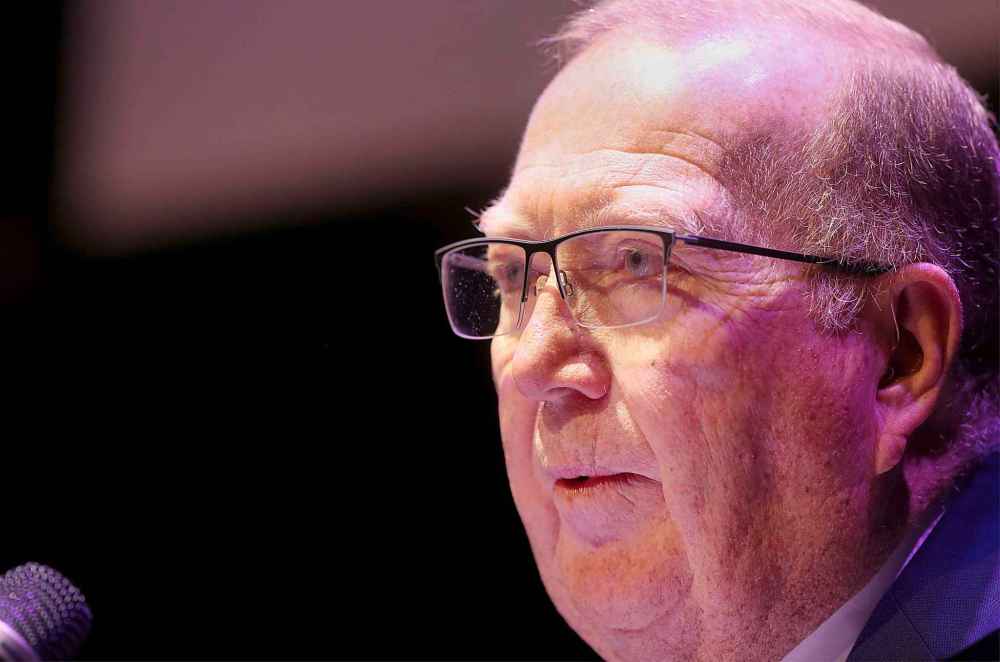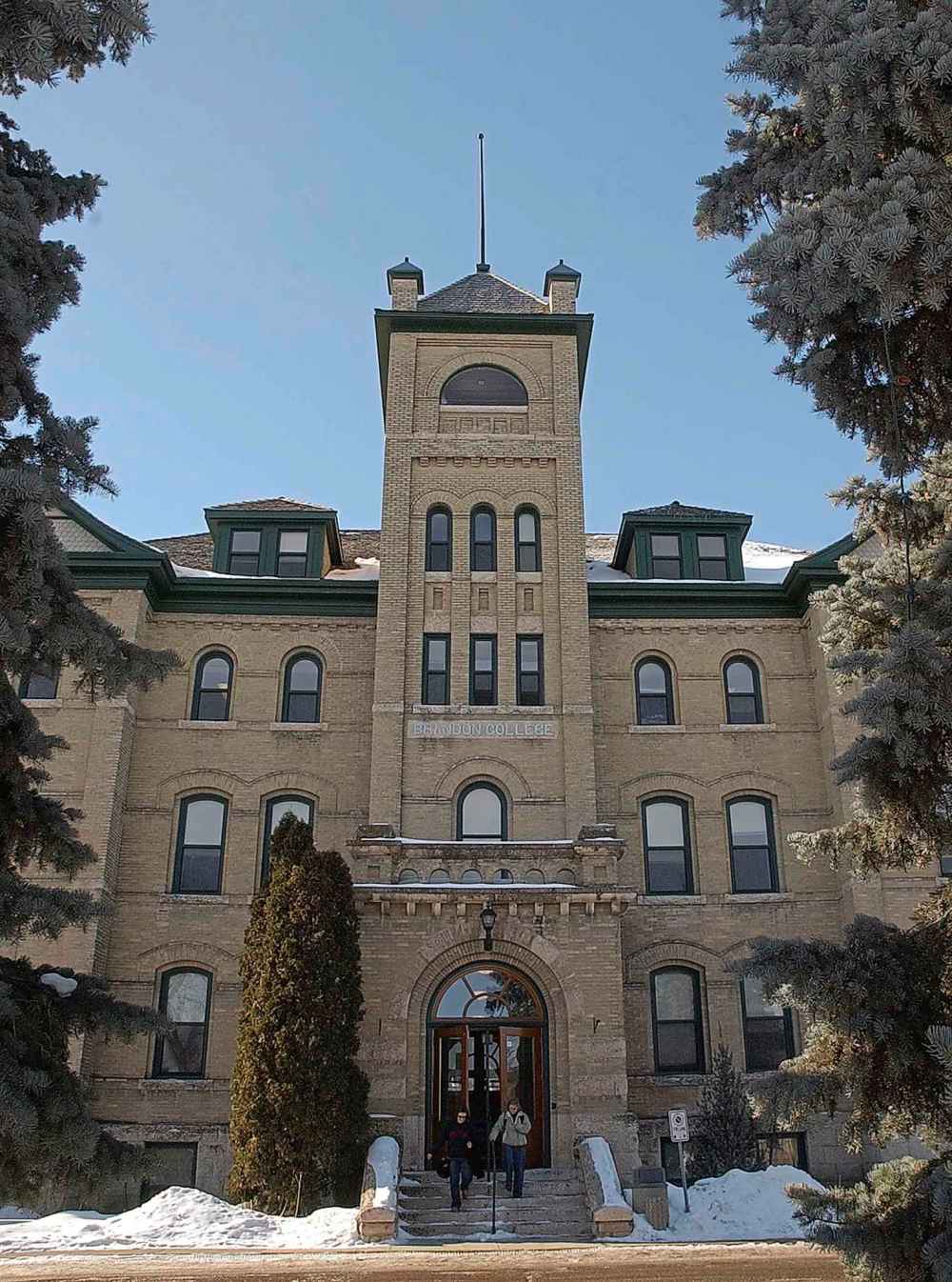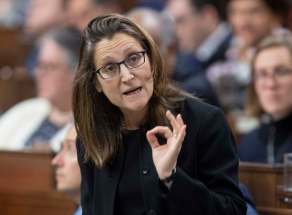New mandate: post-secondary schools await instruction from province
Read this article for free:
or
Already have an account? Log in here »
To continue reading, please subscribe:
Monthly Digital Subscription
$19 $0 for the first 4 weeks*
- Enjoy unlimited reading on winnipegfreepress.com
- Read the E-Edition, our digital replica newspaper
- Access News Break, our award-winning app
- Play interactive puzzles
*No charge for four weeks then billed as $19 plus GST every four weeks. Offer only available to new and qualified returning subscribers. Cancel any time.
Read unlimited articles for free today:
or
Already have an account? Log in here »
Hey there, time traveller!
This article was published 05/02/2020 (1784 days ago), so information in it may no longer be current.
Manitoba’s post-secondary schools are anxiously awaiting further instruction about the future of their programs and new “performance”-based funding model, almost two months after the province sent out mandate letters.
At the end of the autumn semester, the provincial government wrote about its modern expectations of publicly-funded colleges and universities to Assiniboine Community College, Brandon University, Red River College, St. Boniface University, University College of the North, University of Manitoba, and University of Winnipeg.
Economic Development and Training Minister Ralph Eichler emphasized the importance of programs being relevant to respond to workforce need, cutting red-tape around program approvals and cancellations, and data on student outcomes.

“It is critical that our colleges and universities be nimble and responsive, ceasing programs that lack responsiveness and value in a modern context and building programs that deliver the skills needed for today and tomorrow,” Eichler wrote in the letters dated Dec. 19, 2019, and released to the public Jan. 17.
Proposed reforms have raised concerns among faculty who question how school data will be linked to outcomes — especially in universities and in their humanities programs.
“The question really is: are they aiming to have training centres or universities?” said Tammy Ivanco, a psychology professor at the University of Manitoba.

“The university is the place where you get a very broad type of education. It allows for thinking about things like cultural influences and history, and learning how to be a critical thinker — using information in ways that are really flexible.”
Bryan Hill, president of the Brandon University Faculty Association, echoed those thoughts Thursday.
The mandate of a college might be to prepare students directly for the workforce, he said; meanwhile, BU’s goals include furthering social and cultural development, serving in the betterment of society and encouraging “a continuing love of learning.”
“Is learning philosophy and history no longer important to anybody? Is music no longer important, or any of the fine arts?” the Brandon-based chemistry instructor said. “That’s worrying, to say the least.”
Spokespeople from U of M, U of W and Red River told the Free Press they are waiting to hear from the Tory government about next steps. While it’s unclear how the province will track performance, the final 2017 Manitoba College Review recommended it consider enrolment numbers, completion rates and employment rates.
“The university is the place where you get a very broad type of education. It allows for thinking about things like cultural influences and history, and learning how to be a critical thinker– using information in ways that are really flexible.”
– Tammy Ivanco, University of Manitoba psychology professor
The report by Toronto-based Higher Education Strategy Associates states outcomes can “vary significantly” between institutions, although the firm’s president said it’s necessary tracking occurs at all post-secondary schools.
In light of the mandate letter, Janet Morrill of the U of M Faculty Association said she and her colleagues are “very concerned” about the institutional autonomies of universities across the province.

“By putting in certain performance metrics and tying operating budgets to those metrics, the concern is that those metrics, however they end up being defined, end up putting pressure on the university to operate differently,” said Morrill, who teaches accounting.
“For example: to cut the funding to one faculty to favour another faculty, it’s an external force that ends up interfering with the decisions that the university would otherwise be making.”
Alex Usher, president of the firm who undertook the 2017 college review, countered that argument. He said there’s nothing wrong with asking both schools to work with industry, and limiting bureaucracy around program approval and cancellation will benefit all.
“It’s about setting goals for them, but giving them autonomy in how they get there,” he said, adding Manitoba wouldn’t target humanities programs since it recognizes the importance of soft skills.
“Is learning philosophy and history no longer important to anybody? Is music no longer important, or any of the fine arts?”
– Bryan Hill, president of the Brandon University Faculty Association
No matter how it’s done, the U of W Faculty Association supports the move to measure outcomes, as long as it’s involved in the consultation process — and the province has indicated all schools will be.
“I don’t think that having data is ever a bad thing, but it’s understanding and interpreting what those numbers are actually telling you,” said association president Jacqueline Romanow.
Romanow, chair of Indigenous studies at U of W, said she doesn’t see the mandate as a threat to any university programs.
“A college produces different kinds of labour force entrants than a university… But, you could argue, ‘What kind of degree doesn’t help a student get a job?’” she said.
“Whether it’s a classics degree or bio-sciences, if a student is really committed to learning, they develop discipline and the ability to analyze problems. All of those things are going to make a better, more productive member of the workforce.”
maggie.macintosh@freepress.mb.ca
Twitter: @macintoshmaggie
Mandate letter - University of Manitoba

Maggie Macintosh
Reporter
Maggie Macintosh reports on education for the Winnipeg Free Press. Funding for the Free Press education reporter comes from the Government of Canada through the Local Journalism Initiative.
Our newsroom depends on a growing audience of readers to power our journalism. If you are not a paid reader, please consider becoming a subscriber.
Our newsroom depends on its audience of readers to power our journalism. Thank you for your support.










